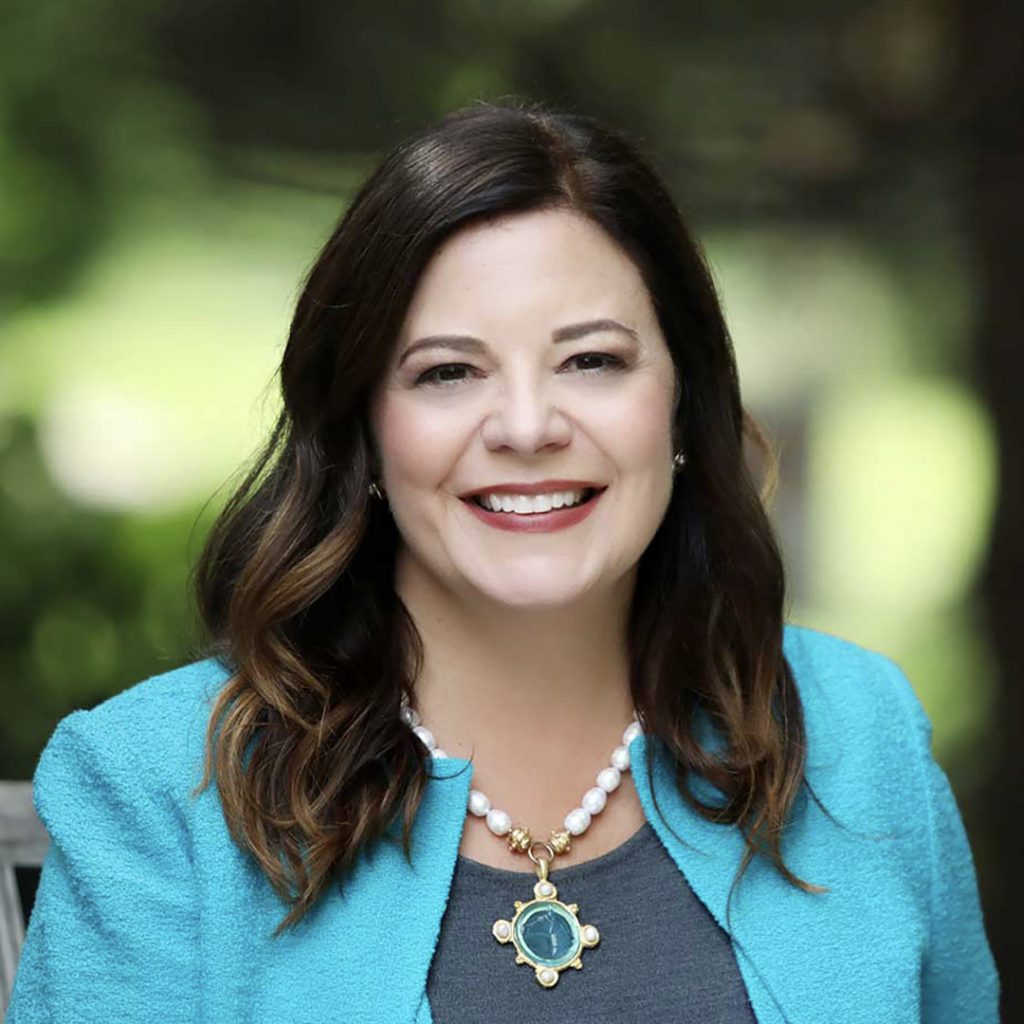
Deborah Trefts
Staff writer
Many people want to change the world, or at least a part of it.
Aggrieved by civic, environmental, financial, health-related or social problems, they donate their time, talent, treasure and more to causes and organizations that they trust will make things better.
Philanthropists abound, whether they have much to give monetarily, or very little.
At 3 p.m. on Saturday in the Hall of Philosophy, Kris Putnam-Walkerly will join the Chautauqua Women’s Club’s Contemporary Issues Forum series with a talk titled, “Unlocking the Secrets of Effective Giving: Avoiding Delusional Altruism in Philanthropy.”
Putnam-Walkerly is the founder, global philanthropy adviser and president of Putnam Consulting Group.
“Giving money away effectively isn’t easy,” she said. “… It’s easier said than done. The problems we face as a society are challenging enough. (Yet) donors are getting in their own way, impeding their ability to be effective.”
Having seen this pattern for over two decades, Putnam-Walkerly said she wants to help funders realize it.
“It’s not about shame or blame, but about recognizing this problem,” she continued.
Her latest book, Delusional Altruism: Why Philanthropists Fail to Achieve Change and What They Can Do to Transform Giving, is among the ways Putnam-Walkerly has been sharing her message and advice throughout the philanthropic community.
“You need a mindset of abundance, versus scarcity, to increase your clarity of what you want to accomplish, whether you’re giving away tens of millions or tens of dollars,” she said. “It’s a difference of scale. There are things we can all do to improve how we give.”
Much of the background and skills needed for counseling her clients — “ultra-high-net-worth donors, foundations, Fortune 500 companies, celebrity activists and wealth advisers” — came from the life and career path Putnam-Walkerly traversed before founding Putnam Consulting Group at the turn of the 21st century.
Originally from Toledo, Ohio, she spent her high school years in Wooster, Ohio. After her mother purchased a house at Chautauqua, her first summer job upon graduating in 1990 was working at the gourmet food store on the ground floor of the St. Elmo, which had recently been redesigned and rebuilt. The following summer, she scooped ice cream at the Refectory.
At Indiana University, Putnam-Walkerly double-majored in political science and anthropology with minors in Latin American studies and Spanish, she became a student activist.
Upon graduation, Putnam-Walkerly moved to San Francisco, and spent two years as a political organizer for the Committee In Solidarity with the People of El Salvador, or CISPES.
“It was a great experience,” she said. “I went to El Salvador a couple of times during the civil war. I got burned out since I was literally working 100 hours a week (but people) were dying and I wanted to help them.”
Next, she worked as an administrative officer at the Veterans Affairs Medical Center in Menlo Park, California, and to continue to challenge herself and learn more, she enrolled at San Francisco State University to earn a Master of Social Work.
The program “was very progressive,” she said. “It included a wide range of students economically, culturally and age-wise.”
After earning her master’s degree in 1996, she took on a role for a research center at Stanford University’s School of Medicine, evaluating the Youth and Gang Violence Prevention Program by traveling throughout California to high schools and other organizations.
“Because this effort was funded by a foundation, philanthropy really intrigued me,” she said. “Your main asset is money, though that doesn’t mean you do well with it. How do we tackle this problem systematically, at the state level?”
Next, one of the largest and most influential foundations in the United States – the David and Lucille Packard Foundation – hired Putnam-Walkerly as a temporary grant maker for the federal Child Health Insurance Program, which focused on families that made too much money for Medicaid, but were still struggling financially.
“My job was to support and fund the not-for-profits doing the outreach and enrollment, so that families would sign up for it and go to the doctor versus to the emergency room,” she said.
Putnam-Walkerly realized her undergraduate work in anthropology served her foundation work as much as it did her work earlier in her career at CISPES.
“Anthropology is about people looking at life and culture very differently,” she said. “Your perspective isn’t that of others. It helped orient me, and to appreciate what others are bringing (to the situation).”
Following that, she worked for the Packard Foundation in Silicon Valley. With the dot-com boom beginning, many young entrepreneurs were keen to be philanthropists.
“Their money was growing rapidly,” she said. “They were smart, but they didn’t know about not-for-profit giving. There was a lot of opportunity for consulting. I met a consultant who was interested in having me subcontract.”
Taking the offer, Putnam-Walkerly said she started out by consulting on the side, then left Packard to advise clients full-time.
“I learned from that, that not only did I like philanthropy, but also consulting on my own,” she added.
She founded Putnam Consulting Group in California in November 1999 with the Charles and Helen Schwab Foundation as her very first client.
Even though she loved California, her parents were still living in Ohio and a high school reunion took her back to Wooster, where she reconnected with a classmate.
“We instantly fell in love,” she said. “We were engaged four months later.”
At the end of 2006, she moved to Cleveland and “began working with clients all over the country.”
During her talk on Saturday afternoon, Putnam-Walkerly said she will focus on practical advice.
“There are things (everyone) can do (starting) tomorrow,” she said. “They don’t have to be high-falutin’, they don’t have to be Bill Gates. Everyone’s a philanthropist with their time, treasure, connections and expertise.”




